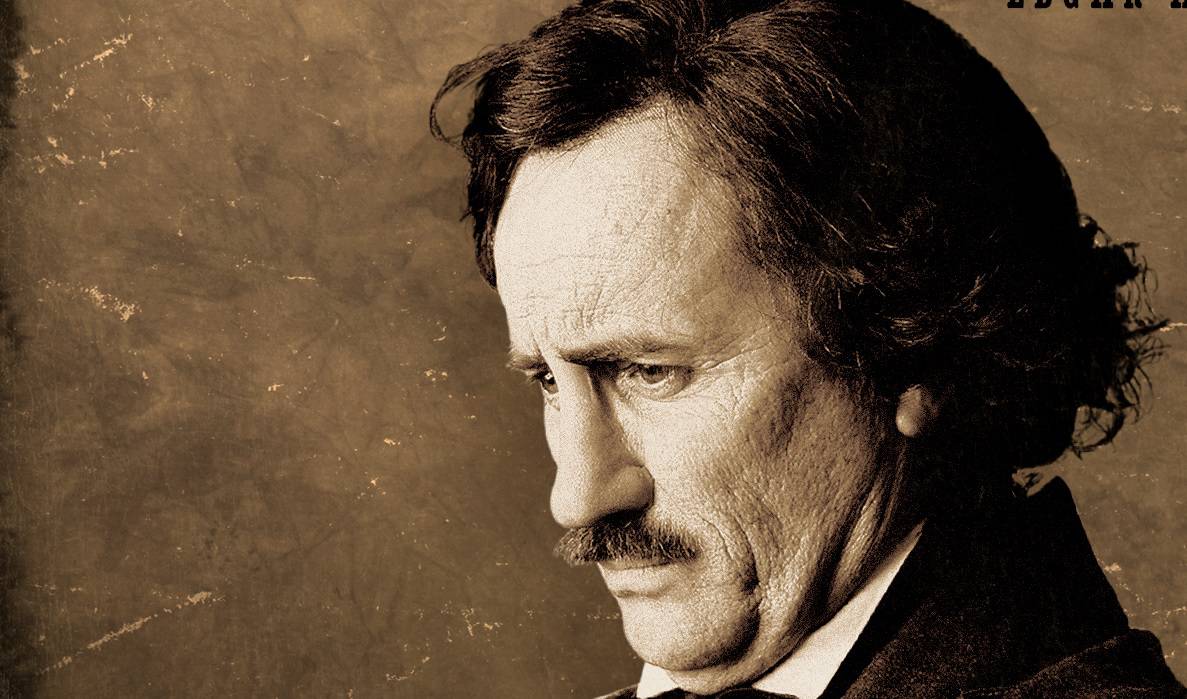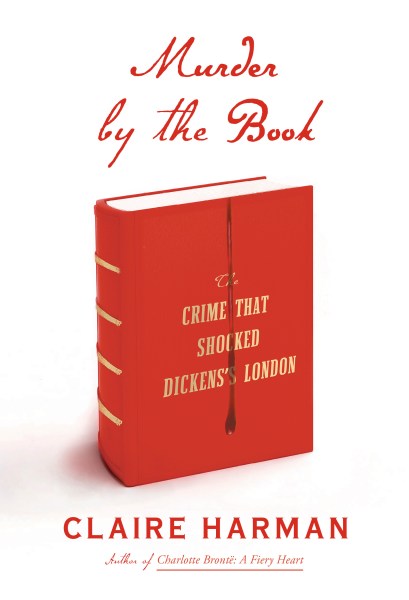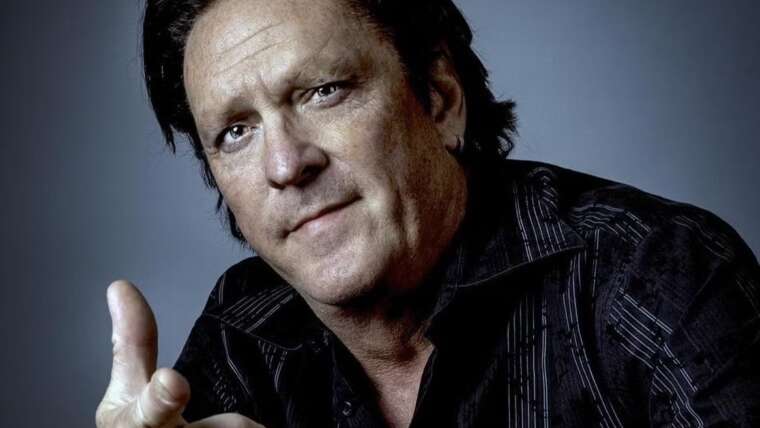
Actor Jeffrey Combs is no stranger to literary-inspired roles. His most famous work is for director Stuart Gordon in a series of films based on the works of H.P. Lovecraft, most notably Dr. Herbert West in Re-Animator. However, his latest endeavor is less about the works and more about the man behind them. In Nevermore, written by Dennis Paoli and directed by Stuart Gordon, Combs recreates an evening with author Edgar Allen Poe, wherein he fully inhabits the famous writer. It’s a stage production the actor has been doing for nearly a decade now, wherein he “enthralls with dramatic recitals of some of the legendary author’s great works, all the while laying bare his tortured, impassioned soul.” We were lucky enough to speak with Jeffrey Combs by phone ahead of a Nevermore performance at the first annual Sleepy Hollow International Film Fest, which takes place on Saturday, October 12.
You’ve been performing Nevermore for over a decade now. What new things have you discovered as you’ve done it over the years?
Well, it certainly changes over time. Once you get anything on its feet, you realize, instinctively, “Oh, that works,” and other things, “Hmm, I could augment that,” or “Let’s alter that” or “Let’s try it this way,” so I have learned a lot of things over time about the show. Having said that, though, it’s structured so well. It’s structured really, really well, the arc of the piece. And I’m speaking Poe, so, you know [sighs] beautiful stuff.
And I mean that. A lot of people think Poe’s just macabre or kind of weird, but he was a soaring Romantic poet, too. He covered a spectrum, so the variety is just really fun to play with.
And when Charles Dickens came to America, he met with Poe – so that’s one heck of an endorsement.
Twice. Twice. Poe wrote Dickens. Dickens was writing a serialized story called Barnaby Rudge, and so Poe wrote Dickens, and said, “I know how this ends,” and he told him, and Dickens was like, “You’re right! How did you know that?” So, he appreciated Poe’s intellect that way, as well as the fact that there wouldn’t be “The Raven” without Barnaby Rudge, to a good degree, because that story deals with, I believe, a parrot that talks, and Poe went, “I can use that device to better advantage.” So, he used a raven, and it made it much more ominous.
Dickens’ own pet raven now lives in Philadelphia.
Exactly. Isn’t that weird? So, the interconnectivity is just remarkable.

So much of your work is based on literary adaptations. Obviously, your most famous roles are a series of films based on the works of H.P. Lovecraft, but that work is also kind of what led you to do Poe, if I’m not mistaken. I heard it was Stuart Gordon’s idea?
All of this is totally by happenstance and chance. I had never heard of Lovecraft when I auditioned for Re-Animator. Trained actor, training programs, theater, residential and regional theater – you know, working actor, went in for an audition. I say I wasn’t aware of Lovecraft, but that’s not entirely true. I knew of Lovecraft, but I just wasn’t aware that his work had sort of seeped into the zeitgeist.
I used to read Eerie magazine as a kid, and seeing all of these creepy movies from the ’50s, without realizing that they were awash in references to Lovecraft. I didn’t know that, but once the name connected to the vibe, I kind of realized, “Oh, he’s influenced quite a few people. That’s why this all seems so familiar.”
And then, it just kind of perpetuates itself, because Re-Animator was such a success: “Do another one, do another one – will you play Lovecraft?” Like, “What?” I really resisted that one, because I don’t look anything like Lovecraft. I’m 5’8”. What was he, 6’4”? Are you kidding? These things kind of take on a life of their own.
The Poe connection wasn’t really something that I jumped into. I was actually looking around for a historic character, and I was looking for something that would distance me from the horror genre, not embed me even more, and I resisted even reading about Poe, I really fell into it. The guy was a genius and multi-faceted, and not easily categorized – to say nothing of being my size.
So, when I suggested it to Stuart, not knowing that a year later, he’d ask me to do The Black Cat – which was really the beginning of it – he urged me on set to think about a one-man show. Again, I was like, “No, not gonna do that, thank you.” Then, he started wearing me down, and we started to get a kind of framework, and there you go.
I don’t really see my evening with Poe as being kind of a ghoulish, creepy, “we’re all going to be icked-out here” – more of an attempt for people to get a visitation with one of the great American writers and maybe appreciate his trials, tribulations, complexity and genius. Maybe, if my own notoriety with Lovecraft draws people in to see my evening with Poe, that’s a good thing.
You use the word “multi-faceted.” I’ve seen some clips online, and it seems very much to be that. It’s not spooky. There is humor and pathos.
He’s very witty, and a very cutting guy. A lot of people [only] know that he wrote these macabre short stories, but in reality, there was only about a dozen that were macabre. There were others. He wrote them very fast, because he was an editor of a magazine, which in those days was very competitive. There were a lot of weeklies and bi-weeklies, and he had to fill space, and they became very popular. What’s amazing is that a lot of those things were done very fast, like quick paintings – but so soulful, and so complete. He’s just a genius, but he viewed himself mostly as a poet.
When “The Raven” was first published, it was put out under a pseudonym, and once everybody started praising it and wondering, “Who is this guy?” Poe then went, “It’s me.” Because he wasn’t very well-liked, because he was a scathing literary critic for magazines. He would read other people’s and rip it. They called him “The Tomahawk,” I think.
 I was going to bring that up: I just got done reading Claire Harman’s Murder By the Book, which is about William Ainsworth’s Jack Sheppard, which caused a Victorian panic because they thought it was leading young men to become criminals.
I was going to bring that up: I just got done reading Claire Harman’s Murder By the Book, which is about William Ainsworth’s Jack Sheppard, which caused a Victorian panic because they thought it was leading young men to become criminals.
I read that book, not too long ago! There was this fervor that things were going to hell.
Right, and when Poe reviewed it, he was absolutely brutal: “Such libels on humanity, such provocations to crime, such worthless, inane, disgraceful romances as ‘Jack Sheppard’ and its successors, are a blot on our literature and a curse to our land.” That was 170 years ago, and it’s as cutting as anything you’d read nowadays.
Just ripping. He wrote one review, and said, “The only redeeming thing in this volume is the binding.” It was like, Jesus Christ! But here’s the other thing about Poe: he was not above taking a fee to write a good review, because he was poor. He had to.
Nevermore is happening at the Sleepy Hollow Film Festival, and I appreciate the fact that you’re doing a stage production at a film fest, especially a spooky one. I like the contrast.
I was honored. When they called and asked, I was impressed, because the overall theme is that they’re going to do a film festival based on literary works. That’s a really nice niche. I’m really honored and excited to be going to SHIFF. It’s pretty amazing. It’s the first really perfect theater for me to do this period piece, because there’s two ways to look at my show: Is it a visitation? Is Poe really visiting us, or have we been transported to his time?
And, really, it works both ways. As Poe said, “All is a dream within a dream.” It’s an imagining, and it’s all just keeping with the tone of Poe.
Jeffrey Combs performs Nevermore: An Evening with Edgar Allen Poe at the Sleepy Hollow International Film Fest on Saturday, October 12, in Tarrytown, New York. More details and tickets are available here.




